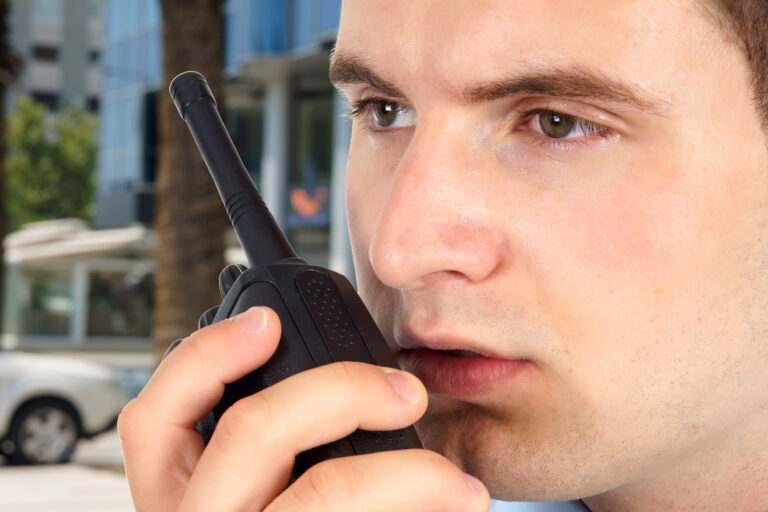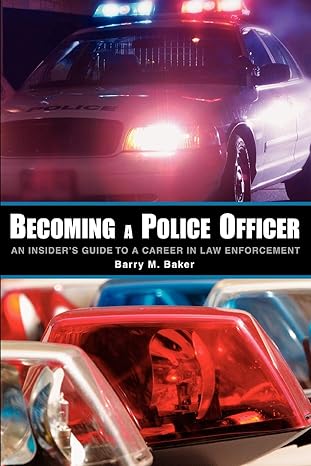
The way you communicate maximizes safety and efficiency no matter how sophisticated your communications system may be.
~ Barry M. Baker Tweet

Detective Lieutenant Barry M. Baker (ret.) is a 32 year veteran of the Baltimore Police Department.
Police radio etiquette can be summed up in seven words; keep it short and to the point. The police radio is a life line; treat it that way. When I began my police career in 1971, the police radio was just beginning to attain some sophistication. Only a few years before, Baltimore foot patrol officers walked their posts (beats) without the aid of two-way radio communication. When an officer made an arrest, he had to walk that person to the nearest call box to call for the wagon. (The call box was a cast iron locked box attached to a utility pole with a telephone inside.)
While I had the benefit of having a walkie-talkie when I did foot patrol, I still could not communicate with the radio cars which were on a different radio band. On a really busy night, it could get pretty difficult to get the attention of the dispatcher. That dispatcher was busy dispatching for three police districts where the radio cars all shared one channel.
Things have improved dramatically over the years; however, operating a police communications system can still be a daunting task. Obviously, the bigger a police department is, the more difficult it is to maintain an efficient communications system.
Following any incident of catastrophic proportions such as the attacks of 9-11, you’ll hear the politicians and media decry the lack of communication among emergency response personnel. While the media can be forgiven their lack of expertise about anything, the pandering politicians are the people ultimately responsible for the level of sophistication of any communications system(s) for emergency responses.
Your Police Radio Etiquette is the Key Factor
Technologically, just about anything is doable. However, when it comes to police radio communication, your police radio etiquette is the key factor. The way you communicate maximizes safety and efficiency no matter how sophisticated your communications system may be. Whether you have a radio with only one channel or twenty, only one person can talk at one time on any channel.
Keep It Short and to the Point
While some police officers love to adhere to the keep it short philosophy when it comes to writing reports, they don’t apply that same standard when it comes to talking on the radio. No matter how much training you receive regarding police radio etiquette, they’ll be some police officers who’ll never come to understand that no one is interested in hearing their redundant verbal narratives via the radio.
Scenario for Police Radio Etiquette
Every police department has a 10 Code for the purpose of identifying particular circumstances and maintaining police radio etiquette. For example, let’s say that 10-32 means sufficient units are on the scene. You’re on patrol when an officer in your sector calls for help. The officer’s transmission is stressed, and it’s obvious that the officer is involved in some kind of physical struggle. There’s going to be response by nearby officers and by officers who are not nearby. There’s going to be a lot of radio traffic with the dispatcher identifying response units.
You’re the second officer to arrive at the scene where you observe the original officer who called for help, and the first back-up officer affixing handcuffs to a suspect. Your first responsibility is to assess the situation for the need of any further assistance. You never know if there might be some circumstance that would require additional officers to respond. In this instance, everything is over, and the suspect is in custody.
Keep the Air Clear
Unless there’s another emergency in progress, the dispatcher is going to keep the air clear; until, this emergency is resolved. The simplest way for you to end the emergency response of other units is to key your microphone and state your call number, the 10 code and location, e.g. ten thirty-two Harford and Broadway. The dispatcher will acknowledge and repeat the 10-32 to make certain all responding units are aware that the emergency is resolved.
I chose the 10-32, because any emergency response by police officers is serious. While officers will continue to respond, particularly when another officer calls for help, their response won’t continue at a break-neck pace.
It’s extremely important for you to always monitor your radio no matter what you’re doing. Trust me; there will be times when the dispatcher will smack you down for violating police radio etiquette.
Another Scenario
Let’s say you’re inside a hospital emergency room, or some other location, where the structure affects your radio reception. You miss the call in the example I described. You’ve finished your call, and you walk outside where you notice that the radio is clear giving you the opportunity to call back into service. Your transmission is met with the dispatcher’s short and abrupt command to stay off the air until the officer assist call is cleared.
Now, even though you did nothing wrong, you’re going to feel a little stupid, but that’s just the way it goes. Here’s the real kicker. In a similar situation, you’re going to hear an officer who will feel the need to go back on the radio to provide an explanation why he or she interrupted the imposed silence in the first place.
Everybody Talking to Everybody
While communications technology has been advancing for a long time, you’re beginning your career at a time when the speed of that advancement is mind boggling. Some of the advancements are great for law enforcement while others are just a waste of time and taxpayers’ money. When it comes to waste, I like the one about everybody talking to everybody. During my career, I never had the need to talk over the radio with a firefighter or a paramedic.
Think about it this way. If everybody could talk to everybody, more confusion would be created than prevented. While there absolutely should be a system and procedure in place for communication among different emergency response agencies and units, that procedure must be more refined than an everybody talking to everybody free for all.
It all comes back to police radio etiquette and a solid and efficient communications structure and systems. It’s a lot of new technology with the same old story; too many people at the top think that the more complicated and expensive the technology, the better it must be. They even believe that fewer people will be needed to operate and maintain that technology. When this philosophy takes hold in a police department, it breeds a lot of confusion.
The Cell Phone Contribution to Police Radio Etiquette
In my view, the biggest contribution to good police radio etiquette is the cell phone. The cell phone technology has only gotten better and cheaper with time. You may well join a police department where you’ll be issued a cell phone as part of your basic equipment. The cell phone can keep an enormous amount of communication off the radio.
Always remember that your radio is, first and foremost, a life line. Safety is, as it should be, the number one priority for having radio communication in the first place. Every other use of the police radio is simply mere convenience.
Related Content for Police Radio Etiquette
Advertisements


